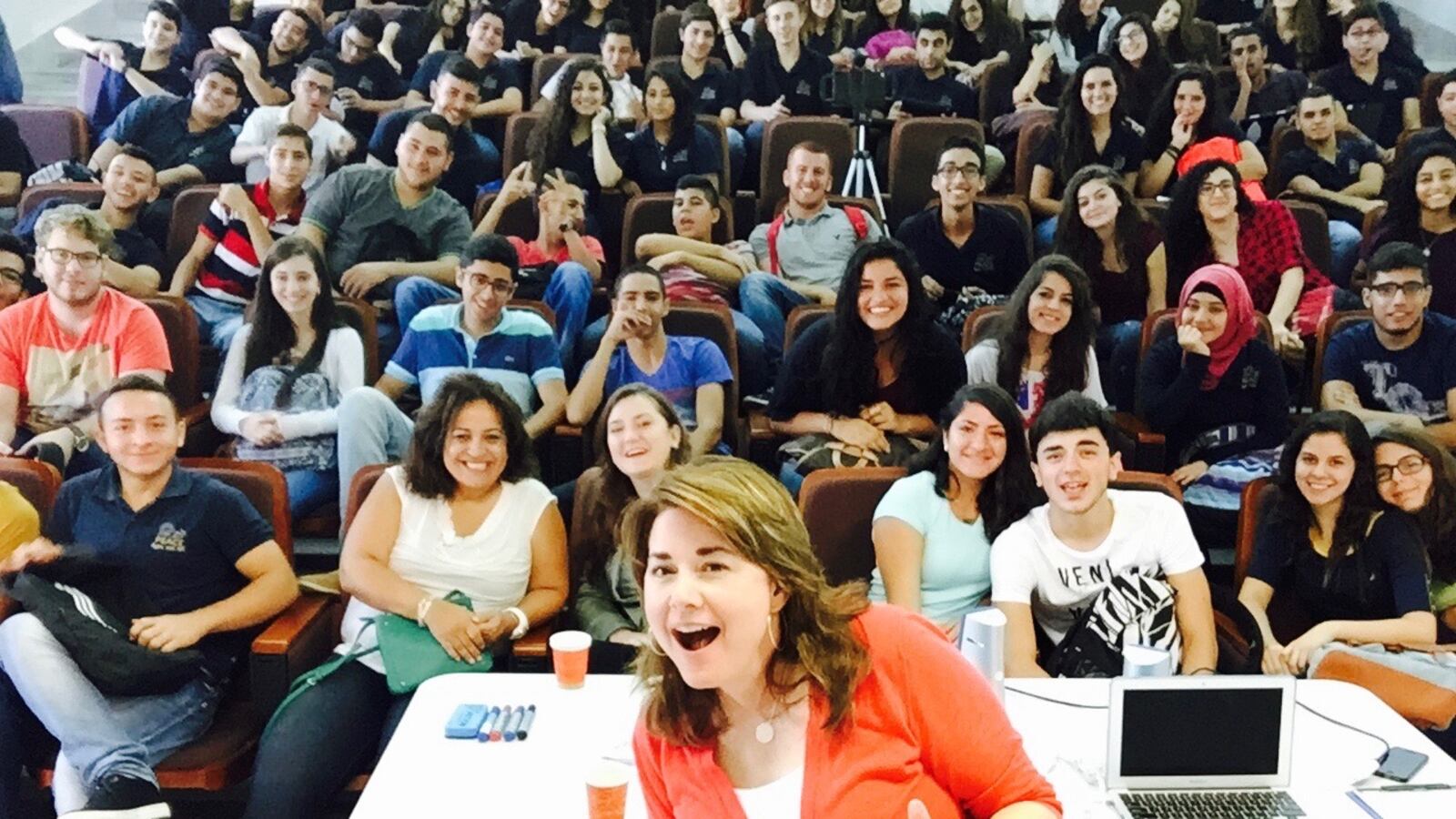This whole national conversation about who we should and shouldn’t let go into which bathrooms got me thinking about the most controversial thing I ever did as a teacher. I’d love to tell you it was teaching a banned book or something intellectual, but it was really all about the bathroom.
I allowed kids to quietly leave class whenever they needed to go without asking my permission.
My principal hated it; some of my colleagues viewed me as some sort of hippie. It made people question my professional judgment, my classroom management, and even my intelligence.
“So, you just let them leave when they want to?”
“If they need to go, yes.”
“Without a pass?”
“My hall pass is on a hook by the door so they can quietly take it and then replace it when they come back.”
“I bet you replace it a lot.”
“Actually, no. It’s the same one. I keep it around because it has a picture from my first year when I looked a lot younger and skinnier.”
Usually, people walk off before I can tell them any more of my crazy commie ideas. They’d die if they knew kids could take my pass to the nurse or their counselor if they needed to go. My only rule was that they had to show the same decorum that they would at the movies: no one gets up in a theater and loudly announces their business.
And in 15 years, no one used it as an excuse to skip the class or wander the campus or otherwise engage in shenanigans. Actually, no — one kid took the pass and didn’t come back until the next day. But that was because he was an English language learner on his second day who didn’t quite understand that it’s not meant as a “go home in the middle of the school day” pass.
When I began teaching, it was in a seventh-grade classroom in a portable, which is really just a converted double-wide trailer. The bathrooms were the separation space between my classroom and the reading teacher’s classroom. It seemed mean to me to control the bathroom needs of children in 90-minute block classes seated so close to one another. That was the origin of the policy.
Years later, one of my students wrote about me in an essay. I was prepared to read some sort of “Freedom Writers” love letter about the magic of my teaching. What she wrote instead was: The first day in her class I learned that she had the best bathroom policy ever. She treated us like human beings who could be trusted to take care of our own private needs.
I kept scanning the essay for the parts about the teacher magic, but that was really the only part about me specifically. The best bathroom policy ever. That’s my legacy.
But seriously, kids really can be trusted to take care of their own private needs. Especially those who are teenagers who drive cars. Or who are responsible in their after-school jobs for locking up a store’s daily receipts in the safe. Or who are responsible for getting four siblings to school on time because mom works the morning shift.
People complain to me, when they find out I used to teach high school, about how “lazy and irresponsible kids are these days.” That just irritates the fire out of me. What if so much of that behavior is because we don’t allow kids to try on trust and responsibility with little things like taking care of their bathroom business?
And maybe what looks like “laziness” is really a trained helplessness and passivity borne of so many rules and restrictions against movement of any kind. Don’t get up without permission, don’t talk without permission, don’t turn and look out the window without permission, and for Pete’s sake, don’t you put your head down on your desk and act like you’re tired because you were up all night at the hospital with your father who just had a heart attack.
Trust is a thing we create through small daily interactions. Simple things like extending the same courtesies to them as we would want for ourselves. I’m always so appreciative of professional development presenters who take the time to tell you where the coffee, water fountains, and bathrooms are. That communicates respect and consideration.
As teachers, we have to be willing to be the first to extend trust. When we do, kids will return it.
Shanna Peeples’ teaching career, all in Title I schools, began as a seventh grade writing teacher at Horace Mann Middle School in Amarillo, Texas. She later taught English at Palo Duro High School, and as the 2015 National Teacher of the Year, worked to shape the conversation in this country about working with students in poverty. She now serves as the secondary English language arts curriculum specialist for Amarillo ISD.
This piece first appeared in Curio Learning.
About our First Person series:
First Person is where Chalkbeat features personal essays by educators, students, parents, and others trying to improve public education. Read our submission guidelines here.


